History of the Middle East
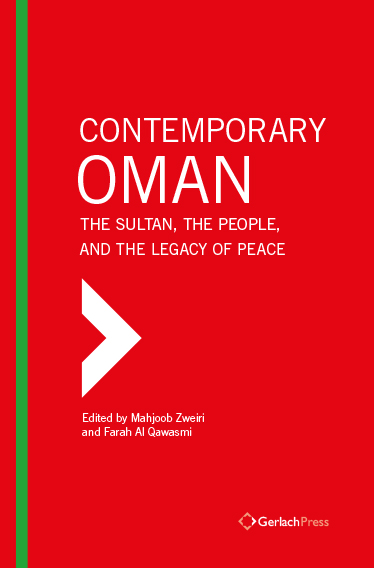
Mahjoob Zweiri, Farah Al Qawasmi
Contemporary Oman
The Sultan, the People and the Legacy of Peace
2025-01
At a time of rapid international change and marked regional dynamism, the Sultanate of Oman is emerging as a nation of surprising significance. Oman is a unique case of a Gulf state strategically and culturally located at a crossroads between the Indian Ocean, the Arabian Sea and the Persian Gulf. From this position, the Sultanate has developed its own political identity and pursued a unique foreign policy in the turbulent Middle East region, enabling the country to survive and overcome the challenges of the region. Over th...
more »
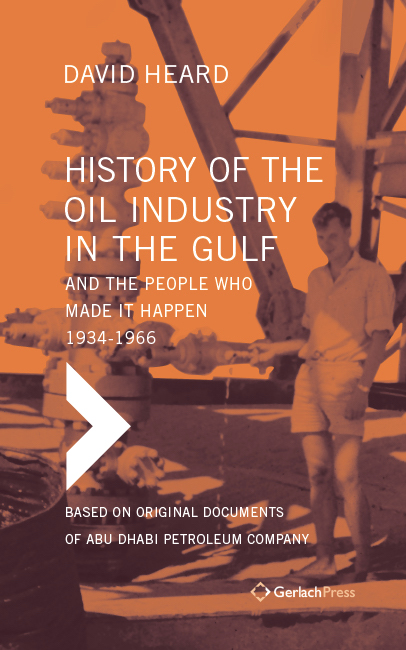
David Heard
History of the Oil Industry in the Gulf and the People Who Made it Happen, 1934-1966
Based on Original Documents of Abu Dhabi Petroleum Company. With a Summarized Index for all Volumes (Set of 5 Parts in 6 Volumes)
2025-01
These volumes are a testament of the challenges contended by extraordinary men who initiated the search for oil in the United Arab Emirates in the years between the two World Wars. This set of a total of five books in six volumes features never-before-published copies of letters, notes and reports complementing the research, which stems from the archives of the Abu Dhabi Petroleum Company (ADPC) and other literature recorded by British Government officials. With rare photographs and maps alongside the author's ...
more »
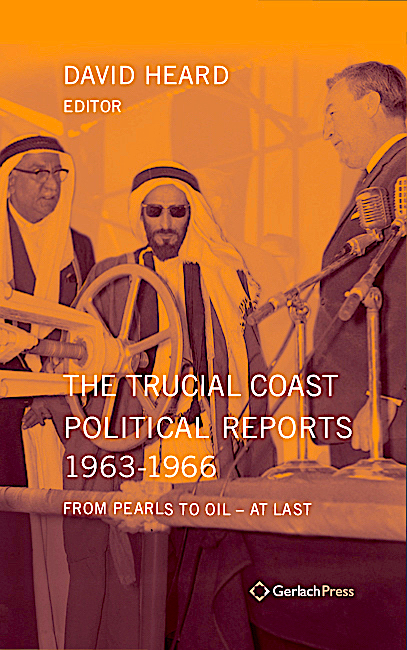
David Heard
The Trucial Coast Political Reports 1963-1966. From Pearls to Oil - at Last.
With a Summarized Index for all Volumes (History of the Oil Industry in the Gulf, Part 5)
2025-01
The Trucial Coast Political Reports are a unique record of events, commented on by a small group of British men living in Sharjah and Dubai. This was in the years leading up to the commencement of oil exports from the desert of Abu Dhabi. These men regularly met to discuss and negotiate with the Rulers of the Trucial States - sometimes in a state of mutual incomprehension - the conditions under which the Company (Petroleum Development/ Trucial Coast or PD/TC) would operate in their various territories. Boundaries and fron...
more »
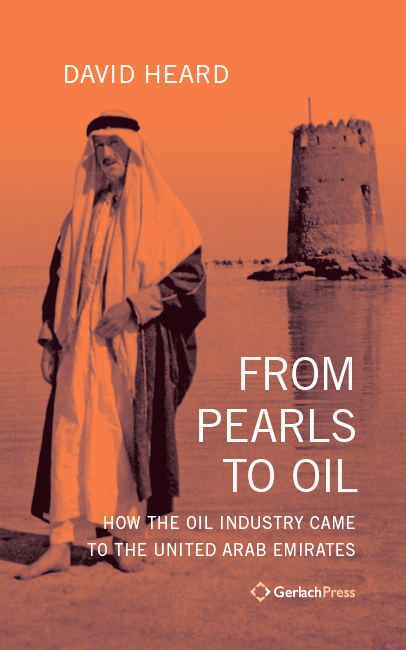
David Heard
From Pearls to Oil. How the Oil Industry Came to the United Arab Emirates
(History of the Oil Industry in the Gulf, Part 1)
2025-01
From Pearls to Oil is a testament of the challenges contended by extraordinary men who initiated the search for oil in the United Arab Emirates in the years between the two World Wars. This book features never-before-published copies of letters, notes and reports complementing the research, which stems from the archives of the Abu Dhabi Petroleum Company (ADPC) and other literature recorded by British Government officials. With rare photographs and maps alongside the author's in-depth narrative, this book is a...
more »
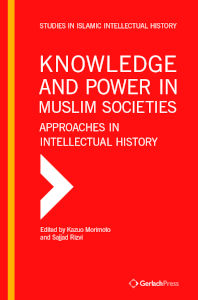
Kazuo Morimoto, Sajjad Rizvi
Knowledge and Power in Muslim Societies
Approaches in Intellectual History
2023
The study of Islam and of Islamic history is enjoying something of a revival with an emphasis on intellectual history and a greater concern with the ’subaltern’ within that. Why does religion continue to hold significance in our times? Are humans better off, adaptable, less violent, consistently unpredictable? How can we understand the course of our political history and the seeming dominance of democracy and its discontents, not least the legacies of coloniality and empire? While nationalist historiographies prevail in man...
more »
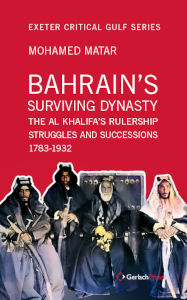
Mohamed Matar
Bahrain’s Surviving Dynasty
The Al Khalifa’s Rulership Struggles and Successions 1783-1932
2023
The Al Khalifa of Bahrain is a long-standing dynasty that has established dispute resolution measures to overcome intra-tribal ambitions for power and wealth, replacing extra-constitutional rulership succession with primogeniture. Since their control over Bahrain began in 1783 until the British withdrawal from the Gulf in 1971, the Al Khalifa introduced ten senior ruling shaykhs, seven of whom experienced turbulent successions, and faced in-house rivalries and power-seeking disputes. This book provides valuable insights int...
more »
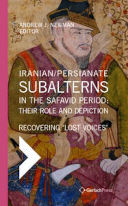
Andrew J. Newman
Iranian / Persianate Subalterns in the Safavid Period: Their Role and Depiction
Recovering ’Lost Voices‘
2022
‘Subaltern studies’ refers to the importance of ‘subordinate’ groups in the making of history. The latter are usually defined as encompassing the urban and rural underclasses, the majority in any society, although generally the term is said to refer to all non-elites, including women. Most often the discourse concentrates on instances of social protest as points whereat the ‘subalterns’ make their ‘voices’ heard in response to, or even independent of, manipulations by the elite. The book draws on wide-ranging sources to b...
more »
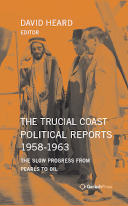
David Heard
The Trucial Coast Political Reports 1958-1963. The Slow Progress from Pearls to Oil
(History of the Oil Industry in the Gulf, Part 4)
2021
The Trucial Coast Political Reports are a unique record of events, commented on by a small group of British men living in Sharjah and Dubai. This was in the years leading up to the commencement of oil exports from the desert of Abu Dhabi. These men regularly met to discuss and negotiate with the Rulers of the Trucial States - sometimes in a state of mutual incomprehension - the conditions under which the Company (Petroleum Development/ Trucial Coast or PD/TC) would operate in their various territories. Boundaries and fronti...
more »
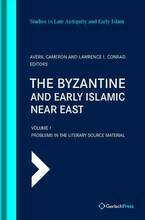
Averil Cameron, Lawrence I. Conrad, John Haldon, Geoffrey King
The Byzantine and Early Islamic Near East
Set, Volumes 1-4
2021
Volume 1: Problems in the Literary Source Material focuses on the problems researchers face when using (Byzantine) Greek, Syriac and Arabic sources together for the reconstruction of Near Eastern history from 400–ca. 800. Volume 2: Land Use and Settlement Patterns revisits archaeological evidence from Syria, Palestine, the Arabian Peninsula, Iraq and Egypt describing a variety of land-use patterns and the development of a particular type of settlement across the Near East. Volume 3: States, Resources and Armies focuses on a ...
more »
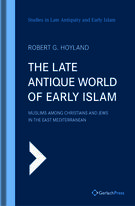
Robert G. Hoyland
The Late Antique World of Early Islam:
Muslims among Christians and Jews in the East Mediterranean
2021
This book offers a number of innovative studies on the three main communities of the East Mediterranean lands—Muslims, Jews and Christians—in the aftermath of the seventh-century Arab conquests. It focuses principally on how the Christian majority were affected by and adapted to their loss of political power in such arenas as language use, identity construction, church building, pilgrimage, and the role of women. Attention is also paid to how the Muslim community defined itself, administered justice, and regulated relations ...
more »
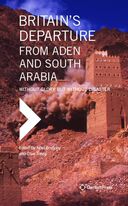
Noel Brehony, Clive Jones
Britain’s Departure from Aden and South Arabia:
Without Glory but Without Disaster
2020
Britain’s hasty departure from Aden and South Arabia after 128 years has often been presented as a humiliation at best and a disaster at worst. London’s hopes of handing power and sovereignty over to a friendly federal regime collapsed in the face of a nationalist uprising backed that enjoyed the support of Egypt. Five decades after the final British troops left Aden, academic experts and former British officials directly involved in the events that unfolded critically reflect on British withdrawal from South Arabia, the po...
more »
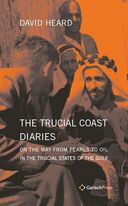
David Heard
The Trucial Coast Diaries 1948-1957. On the Way from Pearls to Oil in the Trucial States of the Gulf
(History of the Oil Industry in the Gulf, Part 3)
2020
The Trucial Coast Diaries are the secret reports written in Dubai by the Representatives of the London based group of oil companies, the Iraq Petroleum Company, known on the Trucial Coast as Petroleum Development (Trucial Coast), PD(TC). These men, the authors, were in a unique position to observe the social, economic and political environment of the people then living in the present day United Arab Emirates, before oil revenues led to a dramatic transformation from intense poverty to the great wealth which now permeates eve...
more »
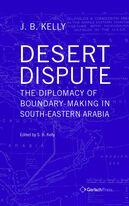
J. B. Kelly
Desert Dispute: the Diplomacy of Boundary-Making in South-Eastern Arabia
Volume 3
2019
This is the third and final volume of a previously unpublished study by the foremost authority on the subject. The book is based on thorough research in the relevant archives and direct experience of the dispute. As such it will be the standard reference work on this question for all who have an interest in the Gulf Arab states, their territorial origins and its effects on their increasing role in regional and world affairs. The struggle to delineate the boundaries of south-eastern Arabia can claim to be one of the longest r...
more »
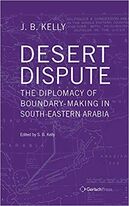
J. B. Kelly
Desert Dispute: the Diplomacy of Boundary-Making in South-Eastern Arabia
Set, Volumes 1-3
2019
This new and previously unpublished study, by the foremost authority on the subject, is an exhaustive one, based on thorough research in the relevant archives and direct experience of the dispute. As such it will be the standard reference work on this question for all who have an interest in the Gulf Arab states, their territorial origins and its effects on their increasing role in regional and world affairs. The struggle to delineate the boundaries of south-eastern Arabia can claim to be one of the longest running diplomati...
more »
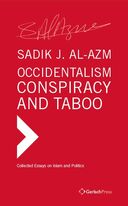
Sadik J. Al-Azm
Occidentalism, Conspiracy and Taboo. Collected Essays on Islam and Politics
Volume 4
2019
Sadik Al-Azm (1934-2016) was one of the foremost Arab public intellectuals, who offered innovative, often controversial challenges to conventional narratives on Islam and the West, Secularism, Orientalism, and the Israel-Palestine issue. This fourth collection of his essays includes: - Syria in Revolt (2014) - Experience or “Regime of Truth”? About Translation, Arabic and the Postmodern (2014) - Orientalism of the Worst Kind (2015) - The Shari‘a from a Secular Perspective (2015) - Crossing Borders: Orientalism, lslamism and ...
more »
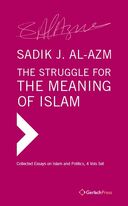
Sadik J. Al-Azm
The Struggle for the Meaning of Islam. Collected Essays on Islam and Politics.
Set, Volumes 1-4
2019
Sadik Al-Azm (1934-2016) was one of the foremost Arab public intellectuals and an internationally respected scholar and political commentator who offered innovative, often controversial challenges to conventional narratives on issues surrounding Islam and the West, secularism, Orientalism, and the Israel-Palestine issue. He was recognised as a principled defender of human rights and has been the main ethical reference for the Syrian revolution. Al-Azm was educated at the American University Beirut, and at Yale in modern Euro...
more »
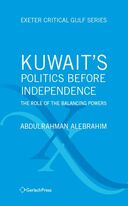
Abdulrahman Alebrahim
Kuwait's Politics Before Independence: The Role of the Balancing Powers
2019
This book re-examines the historiography of constitutional development in Kuwait. It argues that existing scholarship on the subject has several shortcomings due to the lack of consideration given to the role played by some important social forces in the Kuwaiti political scene. Most historians working on Kuwait’s modern politics have focussed on two forces: the ruling family and the merchants. Although these two actors have undeniably been the most influential, other segments of society, such as the labour force, the villa...
more »
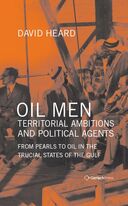
David Heard
Oil Men, Territorial Ambitions and Political Agents. From Pearls to Oil in the Trucial States of the Gulf
2 Volumes (History of the Oil Industry in the Gulf, Part 2)
2019
“Oil Men“ represents a unique resource for the student of the challenges, both physical and political, of oil prospecting in a region with no infrastructure and no formal boundaries between local power bases. The book charts the slow and unexpected transformation of the emirates from poverty to undreamed-of wealth. Detailed coverage with extensive access to primary sources describes the frequently tortuous negotiations between oil companies, sheikhs and regional political agents, all of whom sought to protect their different...
more »
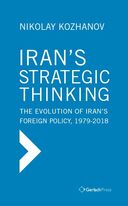
Nikolay Kozhanov
Iran’s Strategic Thinking:
The Evolution of Iran’s Foreign Policy, 1979-2018
2018
What are the ideological motives behind Iran’s foreign policy? This new study examines Tehran’s twin desires to protect national interests and to project real power. Factors determining Iran’s foreign policy include: - Potential economic leader of the Middle East region - Key player in the oil and gas market - Centre of resistance against global Western domination - US and Israel policy - Syria as the bridge to Lebanon and Palestine There is a strong focus on primary sources, as well as interviews with EU, Russian and Middle...
more »
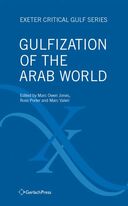
Marc Owen Jones, Ross Porter, Marc Valeri
Gulfization of the Arab World
2018
From projecting ideology and influence, to maintaining a notion of ‘Gulfness’ through the selective exclusion or inclusion of certain beliefs, cultures and people, the notion of Gulfization is increasingly pertinent as Gulf countries occupy a greater political and economic role in wider Middle East politics. This volume discusses the notion of Gulfization, and examines how thoughts, ideologies, way of life and practices are transmitted, changed, and transduced inside and outside the Gulf. From historical perspectives such as...
more »
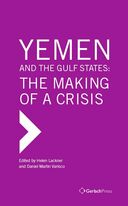
Helen Lackner, Daniel Martin Varisco
Yemen and the Gulf States: The Making of a Crisis
2017
Yemen is the only state on the Arabian Peninsula that is not a member of the GCC (Gulf Cooperation Council). It is also the only local state not ruled by a royal family. Relations between Yemen and the GCC states go back for centuries with some tribes in Saudi Arabia, Kuwait, Qatar, the United Arab Emirates and Oman tracing genealogy back to ancient Yemen. In this timely volume six scholars analyze Yemen’s relations with Saudi Arabia, the United Arab Emirates, Oman and Iran with a focus on recent developments, including the ...
more »
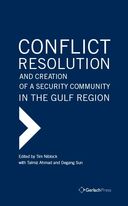
Tim Niblock, Talmiz Ahmad, Degang Sun
Conflict Resolution and Creation of a Security Community in the Gulf Region
2017
The bitter confrontation between Saudi Arabia and Iran is not only stoking conflicts in Syria, Iraq and Yemen, but now threatens the stability, security and well-being of the whole Gulf region. All the major global powers have significant interests in this area, and the pursuit of these interests adds further layers of division and conflict. This book goes to the heart of this issue, examining the critical modalities whereby the "Gulf Cold War" can be brought to an end. What is needed, the contributors argue, is th...
more »
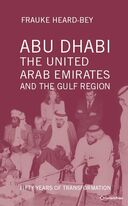
Frauke Heard-Bey
Abu Dhabi, the United Arab Emirates and the Gulf Region:
Fifty Years of Transformation
2016
The unexpected decision of the British Government in January 1968 to withdraw its military and diplomatic protection from the Gulf catapulted the region into the limelight. For the following five decades the historian Dr. Frauke Heard-Bey was best placed to observe subsequent developments in the Gulf, having joined her husband David, a petroleum engineer, in Abu Dhabi in 1967. Through her role over decades in the Centre for Documentation and Research (now the UAE’s National Archive), Frauke Heard-Bey made use of its archives...
more »
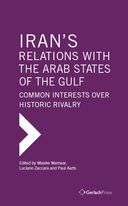
Maaike Warnaar, Luciano Zaccara, Paul Aarts
Iran's Relations with the Arab States of the Gulf:
Common Interests over Historic Rivalry
2016
GCC-Iran relations are at the heart of important political dynamics in the Middle East today. This is not limited to the ongoing disputes in the Gulf, one of the most important strategic locations globally. Iran and the GCC states also find themselves on opposing sides.in the Syrian and to some extent the Iraqi conflicts. This volume traces the origins of the troubled relations between Iran and the majority of the GCC monarchies. It discusses not only geostrategic rivalries, but also matters of identity which have been of in...
more »
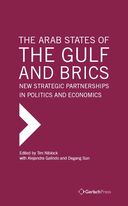
Tim Niblock, Degang Sun, Alejandra Galindo
The Arab States of the Gulf and BRICS:
New Strategic Partnerships in Politics and Economics
2016
How the Gulf Cooperation Council (GCC) relates to BRICS (Brazil, Russia, India, China, and South Africa) is, in the light of the growing strength and importance of this organisation and the countries which comprise it, of critical importance. The issue is not simply how the GCC countries handle their relations with the individual BRICS countries, but more importantly how they relate to an alternative structure of coordination and perhaps power in the global order. Their established links and alliances may no longer be enough...
more »
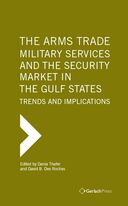
David B. Des Roches, Dania Thafer
The Arms Trade, Military Services and the Security Market in the Gulf States: Trends and Implications
2016
The Gulf is in the first rank of potential global flashpoints. It is the largest market for weapons imports in the world, and is considered to be a vital interest of all the great powers. Iran is viewed as an expansionist threat by the Arab states of the Gulf, who have built considerable militaries in a historically short timeframe. Security in the Gulf, however, is a complicated matter. The Arab states of the Gulf have pursued different defense policies as well as different ways of building up their forces. In some instance...
more »
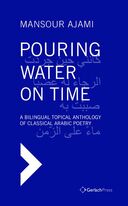
Mansour, Ajami
Pouring Water on Time: A Bilingual Topical Anthology of Classical Arabic Poetry
with a foreword by Sadik J. Al-Azm
2016
This bilingual anthology presents the best of Arabic classical poetry's musings over the many faceted states of the human condition, among them love, generosity, life, time, youth, beauty, ecstasy, longing, wine, death and plenty more. Mansour Ajami's selection of topical verses and poems is guided by what was deemed best in its genre by the consensus of the great classical Arab literary critics and theoreticians. „For Mansour Ajami, Arabic poetry is that Midas touch which transmutes the most common-place words, th...
more »
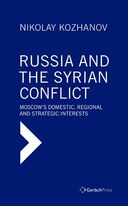
Nikolay Kozhanov
Russia and the Syrian Conflict:
Moscow’s Domestic, Regional and Strategic Interests
2016
This book is the first to offer a comprehensive survey of Moscow’s foreign policy interests in Syria. The author considers the Kremlin’s diplomacy on Syria within the broader system of Russian foreign policy in the Middle East; he analyses the influence of Russian domestic dimensions on Moscow’s approaches to the subject; and he considers how Moscow’s priorities in Syria have evolved during the last five years and what factors influenced this evolution. Key factors considered include: - Russian presence in the Middle East be...
more »
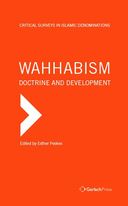
Esther Peskes
Wahhabism - Doctrine and Development
Set, Volumes 1-2 (Critical Surveys in Islamic Denominations)
2016
Saudi Arabian Wahhabism is the ultra-puritanical form of Sunni Islam which has been adopted by Islamist radicals, Salafists, and jihadists to legitimize and spread their extremist agenda. The scholarly articles in these two volumes throw fresh light on this messianic radicalism by tracing its origins in the 18th century up to its present role as the authoritative interpretation of Islam in the strategically vital Kingdom of Saudi Arabia. - Volume 1 focuses on the main tenets of Wahhabi doctrine that brought about the Wahhabi...
more »
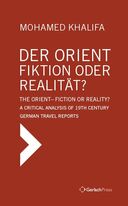
Mohammed Khalifa
Der Orient - Fiktion oder Realität? The Orient - Fiction or Reality?
A Critical Analysis of 19th Century German Travel Reports [Text in German with English Summary]
2015
Following the great expeditions of the 18th and 19th century, travel activity in general increased from the end of the 18th century onwards. In addition to European destinations, the Orient and above all Egypt now became the goal of this movement embracing travel and exoticism. This work centers on the question of the received patterns of thought and argumentation that were applied consciously or unconsciously by those travelers. By way of example, the reports of the Austrian scholar and scientist Joseph (Ritter von) Russegg...
more »
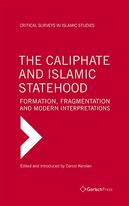
Carool Kersten
The Caliphate and Islamic Statehood: Formation, Fragmentation and Modern Interpretations
Set, 3 volumes
2015
Although the Caliphate was formally abolished ninety years ago, it had already ceased to exist as a unitary and effectively administered political institution many centuries earlier. The ever widening gap between political ideal and historical reality is also reflected in the varying conceptualizations and theories of the Caliphate developed by Islamic religious scholars and Muslim intellectuals past and present. However, recent events in the Islamic world show that the idea of a Caliphate still appeals to Muslims of varying...
more »
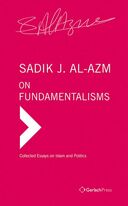
Sadik J. Al-Azm
On Fundamentalisms: Collected Essays on Islam and Politics
Volume 1, with a Foreword by Stefan Wild
2014
Sadik Al-Azm (1934-2016) was one of the foremost Arab public intellectuals, who offered innovative, often controversial challenges to conventional narratives on Islam and the West, secularism, Orientalism, and the Israel-Palestine issue. On Fundamentalisms includes essays on: - Islamic Fundamentalism Reconsidered - Islam and the Science-Religion Debates in Modern Times - The Struggle for the Meaning of Islam - What is Islamism? - The Takfir Syllogism...
more »
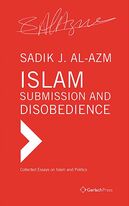
Sadik J. Al-Azm
Islam – Submission and Disobedience
Collected Essays on Islam and Politics Vol. 2
2014
Sadik Al-Azm (1934-2026) was one of the foremost Arab public intellectuals, who offered innovative, often controversial challenges to conventional narratives on Islam and the West, secularism, Orientalism, and the Israel-Palestine issue. Islam – Submission and Disobedience includes essays on: - The Importance of Being Earnest About Salman Rushdie - Is the Fatwa a Fatwa? - The Tragedy of Satan - Satanic Verses Post Festum: The Global, the Local, the Literary - Universalizing from Particulars...
more »
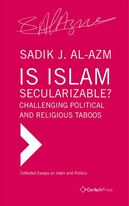
Sadik J. Al-Azm
Is Islam Secularizable? Challenging Political and Religious Taboos
Collected Essays on Islam and Politics Vol. 3
2014
Sadik Al-Azm (1934-2016) was one of the foremost Arab public intellectuals, who offered innovative, often controversial challenges to conventional narratives on Islam and the West, secularism, Orientalism, and the Israel-Palestine issue. Is Islam Secularizable? includes essays on: - Civil Society and the Arab Spring - Orientalism and Conspiracy - Ground Zero Revisited, - Islam and Secular Humanism - Trends in Arab Thought - Palestinian Zionism - Orientalism and Orientalism in Reverse...
more »
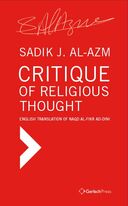
Sadik J. Al-Azm
Critique of Religious Thought. First English Translation of naqd al-fikr ad-dini
with a new introduction by the author
2014
Sadik al-Azm's Critique of Religious Thought set off one of the the great Arab intellectual uproars of the twentieth century, leading to the author's imprisonment and trial for mocking religion and inciting sectarian conflict. As in his earlier Self-Criticism after the Defeat, Al-Azm takes on the taboos of the age and their sponsors: the religious elites. In this book he attempts to awaken the Arab mind from its dogmatic slumber, leading it out of the Middle Ages and into a modern world characterized by science and...
more »
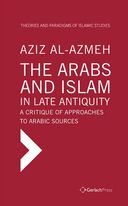
Aziz Al-Azmeh
The Arabs and Islam in Late Antiquity:
A Critique of Approaches to Arabic Sources
2014
This work provides a critique of Arabic textual sources for the history of the Arabs in late antique times, during the centuries immediately preceding Muhammad and up to and including the Umayyad period. Aziz Al-Azmeh considers the value and relevance of a range of literary sources, including orality and literacy, ancient Arabic poetry, the corpus of Arab heroic lore (ayyam), the early narrative, and the Qur’an. The work includes a very extensive bibliography of the works cited. This is the first book in the Gerlach Press se...
more »
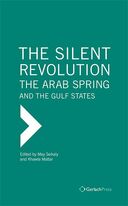
May Seikaly, Khawla Mattar
The Silent Revolution: The Arab Spring and the Gulf States
2014
How immune is the Gulf region to the changes that have engulfed the Arab world since 2011? This volume responds to this question by examining the impact of the Arab Spring on Gulf regimes and societies and contributing to debates on political participation and citizenship; sectarianism, gender and identity formation; as well as the role of the media in exposing the paradoxes of the Gulf system and its relationship to international political actors....
more »
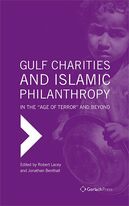
Robert Lacey, Jonathan Benthall
Gulf Charities and Islamic Philanthropy in the "Age of Terror" and Beyond
2014
Gulf Charities and Islamic Philanthropy in the "Age of Terror" and Beyond is the first book to be published on the charities of Saudi Arabia and the Arabian Gulf, covering their work both domestic and international. From a diversity of viewpoints, the book addresses: The historical roots of Islamic philanthropy in religious traditions and geopolitical movements The interactions of the Gulf charities with "Western" relief and development institutions - now under pressure owing to budgetary constraints Num...
more »
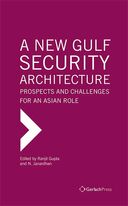
Ranjit Gupta, Abubaker Bagader, Talmiz Ahmad, N. Janardhan
A New Gulf Security Architecture:
Prospects and Challenges for an Asian Role
2014
This book explores how growing economic ties between Asian countries and the Gulf Cooperation Council (GCC) could impact their future relationship. It postulates that the stage is now set for strategic partnerships and highlights how some Asian countries have been explicit about showcasing their power and influence in the Gulf region. While exploring an alternative and broad-based security architecture, it identifies the challenges that any probable Asian cooperative approach could face as the countries of the Arabian Gulf s...
more »
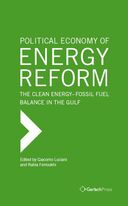
Giacomo Luciani, Rabia Ferroukhi
Political Economy of Energy Reform:
The Clean Energy-Fossil Fuel Balance in the Gulf States
2014
Climate change requires coordinated global responses. All nations, including major Gulf Arab oil producers, should implement policies to contain greenhouse gas (GHG) emissions. Yet all realistic scenarios point to the continuing global need for fossil fuels. The countries of the Gulf Cooperation Council (GCC) thus face a dilemma between continuing development and use of their fossil fuel endowments and increasing reliance on low carbon sources, such as nuclear, solar or wind. This book explores various facets of the dilemma....
more »
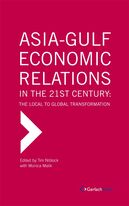
Tim Niblock with Monica Malik
Asia-Gulf Economic Relations in the 21st Century. The Local to Global Transformation
2013
Asia constitutes the hub of the transformation of global economic power today. The Gulf, itself part of Asia, is of increasing importance in this transformation. This book documents the growing interactions between the economies of the Gulf states and those of the rest of Asia. These relationships are critical to how the world economy develops over the next decade, and how economic (and perhaps strategic) power is distributed. This volume assembles cutting-edge thinking by 16 specialists on a wide variety of topics covering ...
more »
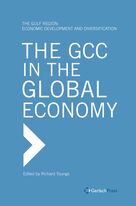
Richard Youngs
The GCC in the Global Economy
2013
Changing geopolitical realities have seen the Gulf region turning to Asia and Africa to build new economic links, while strengthening old ones. This proactive internationalism is visible not just in economics and energy, but also in politics and security where a host of new agreements has been developed. This work provides an overview of the ways in which the GCC states now need to move ahead with reforms that will reflect issues such as raised expectations from a period of high revenues and the region's demographics. T...
more »
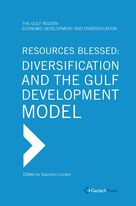
Giacomo Luciani
Resources Blessed: Diversification and the Gulf Development Model
2013
The Gulf countries have adopted a unique combination of policies to encourage diversification with largely positive results, while there are significant distinctions between the individual cases. This work evaluates various examples to show the extent to which the Gulf economies have diversifed to date, and how results can be measured, taking into consideration factors such as composition of GDP or exports; government services; and the categorization of industrial activities downstream of resources extraction (oil refining, ...
more »
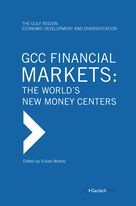
Eckart Woertz
GCC Financial Markets: The World's New Money Centers
2013
Bond markets in the GCC countries are underdeveloped, and the capital mix is heavily skewed towards banks, while ambitious development plans in fields like petrochemicals and infrastructure, as well as a rapidly growing population, create an increased need for finance. This study outlines the structure of various segments of GCC financial markets and points to regulatory challenges and future developments, ranging from capital market structures to the planned GCC Monetary Union, Islamic banking, and sovereign wealth funds. T...
more »
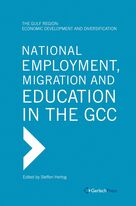
Steffen Hertog
National Employment, Migration and Education in the GCC
2013
This volume provides a cross-cutting analysis of the policy challenges related to GCC labor markets. It analyzes the different dimensions of segmentation of these markets, factors of change influencing labor supply such as trends in education and demography, as well as the impact of potential future reforms in areas such as immigration policy, labor sponsorship, taxation and minimum wages. The work therefore provides an overview of what arguably will be the core socio-economic challenge for the GCC in the coming years....
more »
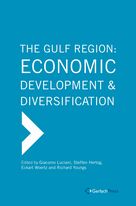
Giacomo Luciani, Steffen Hertog, Eckart Woertz, Richard Youngs
The Gulf Region: Economic Development & Diversification.
Set, Volumes 1-4
2012
The four volumes in this major research collection address the key economic issues which affect the future development and diversification of the member states of the Gulf Cooperation Council (GCC), namely Saudi Arabia, Kuwait, Bahrain, Qatar, UAE and Oman. Specifically, this recent research covers Economic Diversification, Development of Global Partnerships, Labor Markets and Migration, and Financial Markets as Global Players The work brings together state-of-the-art analysis by some 40 international scholars who participat...
more »



